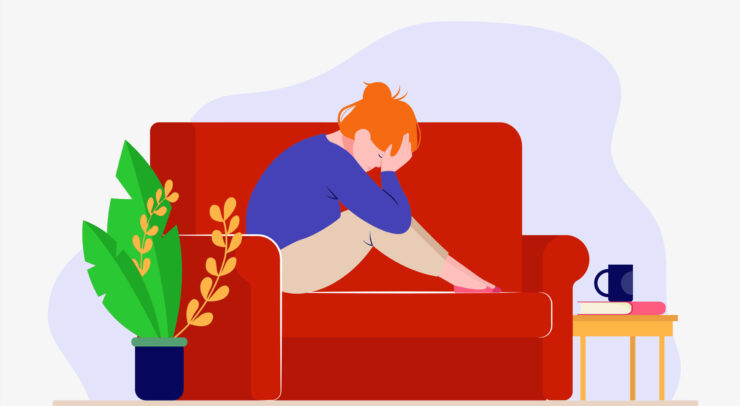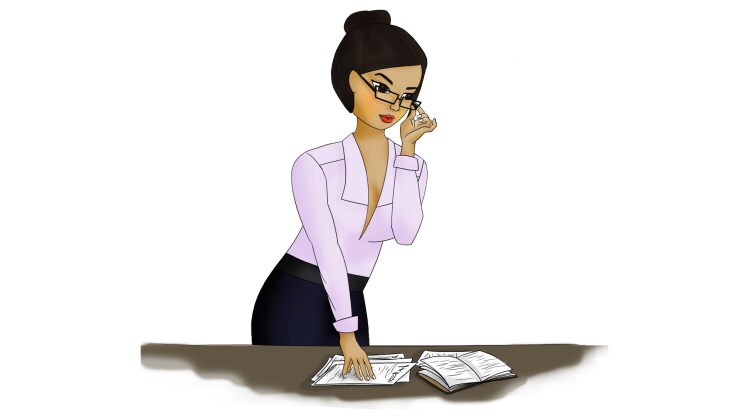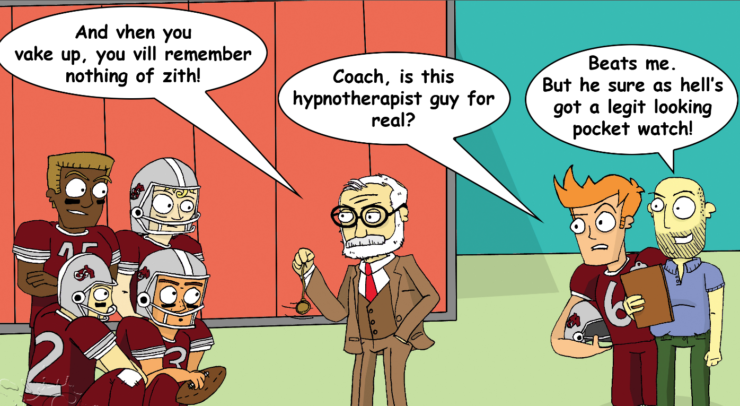We know it hurts, but there are many things to learn from being single again
We are now a month removed from Valentine’s Day, a date where we romanticize love and celebrate relationships. But what about periods of solitude, society hardly romanticizes periods of loneliness, of heartbreak and of endings.
An abrupt ending to a passionate relationship can be difficult to handle, but also relieving. Serena Corsini-Munt, a clinical psychologist, and an assistant professor at the University of Ottawa’s school of psychology explains this experience.
“Breakups represent the end of the relationship and something that was co-created, breakups can be painful and contribute to a sense of loss as well as being relieving,” she said.
And for some, the fall out of a relationship can be devastating.
Harriet Lerner, a clinical psychologist who has done multiple works in regards to the psychology of women and family relationships, agrees that getting dumped is devastating.
“No one likes rejection and it can take a while to recover. This means we need to leave room for our pain, grief, and anger rather than put a false patina of brightness on the situation,” she said.
“Getting dumped can be good if we take a long-range view. For one thing, the relationship may not have been good for us. And when a relationship isn’t good for us, it’s better to be done with it, sooner rather than later.”
“Breaking up is hard to do as for many, it represents the dismantling of something they had put together. But it can also be an opportunity to see oneself in a new way, define oneself outside of the relationship and open oneself up to other possibilities,” described Corsini-Munt.
There are, however, patterns of behaviours that may enhance the difficulties of break-ups
The dance of learned behaviours and the science of bonding
Individuals may feel rushed to get into a relationship, or may even romanticize the idea of a relationship more than the person they are with.
Each person has learned behaviours from their childhood, and each of these impact the way they may act in relationships.
As Britney Blair, doctor of psychology explains, “humans are born absolutely helpless.”
“[We’re] dependent on their parents and caregivers for survival. Out of our need for love, we emotionally bonded with our parents no matter the experience they offered,” stated an article about childhood patterns.
“Unfortunately, we bonded with them in their counter-productive negativity as well as what was life-affirming,” explained Blair.
This results in impacting our “beliefs, perceptions, judgements, needs and desires regarding how to get love and approval, what life is about, how to relate to others, what is spirituality, and the role of work and family.”
You may be asking yourself why this matters — just hear this out.
We are sponges all the way up until adulthood, where suddenly, all the soap — representing our learned reactions and behaviours — we held in is coming right back out into the world in the different interactions we may be having.
Blair provides examples of this such as “acting nice instead of honestly, being compulsively organized, and in putting so much focus on logic that emotional connection is lost.”
Not only does this impact your romantic relationship patterns, it also impacts every interaction in your life.
In 2019, the Canadian divorce rate was at approximately 40 percent, which has shown little change in comparison to the 2001 to 2006 statistics on marriages and common-law relationships ending.
“Ambivalence and uncertainty about whether or not ending the relationship is the best decision is very common. Many people struggle with ambivalence and indecision,” explained Corsini-Munt.
“It can be hard for someone to end a relationship if they do not feel safe or they are unsure how the other person may react. There are other considerations that can make ending a relationship a difficult decision as well such as finances, shared assets and children.”
The impact of traditional roles on learned behaviours
In Lerner’s The Dance of Anger, she goes in depth about patterns and behaviours within relationships. The book is a guide, for women and for everyone to change the patterns in their intimate relationships.
In the book, Lerner explains that “women have long been discouraged from the awareness and forthright expression of anger” which can enhance their struggles.
These expressions are seen through the known and conditioned traditional responses in women, from the “Nice Lady” syndrome to the “Bitchy” woman.
One keeps everything internally and silent, while the other responds and “is not shy about stating their differences. However, in a society that does not particularly value angry women, this puts them in danger of earning one or another of those labels.”
In some relationships, individuals may be finding themselves to be emotionally over-functioning through de-selfing techniques. Lerner explains in the book that “the ‘under functioning-over functioning’ pattern is a familiar one in couples.”
One of the partners, for example, “may become increasingly entrenched in the role of the weak, vulnerable, dependent or otherwise dysfunctional partner.” While the partner simply does not comprehend the intergenerational impact of patterns and therefore bulks up their emotional energy “towards reacting to their problems.”
De-selfing “refers to a state of under-functioning or over-functioning because too much of one’s self or basic integrity — thoughts, feelings, behaviors, ambitions, etc — are compromised or harmed under pressure from a relationship.”
As Lerner further explains, following various research and services she has provided, some people prefer accommodating their partner’s needs before their own.
“Underfunctioners and over functioners provoke and reinforce each other’s behavior, so that the seesaw becomes increasingly hard to balance over time.”
The more one avoids themselves, the more the other will give to try and help their partner, yet lose themselves in the process.
Differentiating between the healthy and unhealthy
Relationships can be ended for a variety of reasons, however, the presence of conflict is, as Corsini-Munt describes, not enough to signal an end on its own.
“Researchers and clinicians will tell you it’s not the level of conflict because even successful and happy relationships have conflict. It’s how the conflict gets managed and repaired,” she said.
“Conflict that is managed with mutual respect and where those involved can repair, grow and learn does not spell the end of the relationship.”
Learning to repair and grow can be a positive outcome of understanding our own learned behaviours and assessing them.
Lisa Henry, sexologist and professor at the University of Ottawa’s school of psychology, explains that one way to distinguish a healthy relationship from an unhealthy one is by applying the “social exchange theory.”
“According to this theory, we assess our relationships based on a ‘cost [or] benefit’ exchange or ratio. Ideally, people want to maximize the benefits of being in a relationship and minimize the costs. When the costs of being in a particular relationship outweigh the rewards, people will tend to end that relationship.”
Beneficial variables would be positive experiences like “honest discussions, mutual respect and equal say in important decisions.” The “cost” variables on the other side are negative experiences like “lack of decision-making power, distrust or pressure.”
“Healthy relationships promote personal wellbeing for those involved and contribute to a sense of emotional security. Unhealthy relationships lack mutual respect, can feel unbalanced and can undermine wellbeing,” said Corsini-Munt.
This would result in you asking yourself if you feel happy when you leave your partner, upset, or if you keep excusing their behaviours. She also advises that people who are more communally motivated tend to thrive in relationships and report higher well-being.
“If you are motivated to do things for the good of the relationship without expectation of an immediate return or exchange and you do this without sacrificing your own needs, you tend to be more relationally satisfied,” she said.
If you have a relationship that has ended, don’t be afraid to cry it out, feel it out, let yourself be hurt and upset for as long as it takes.
But also, congratulations! Now, you can truly get into your healing journey, to understand whether your relationship was healthy or, as even conflictless relationships hold patterns in themselves, maybe what seemed perfect wasn’t so perfect after all.







